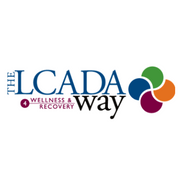
The road to addiction recovery is never easy and often presents many challenges along the way. People sometimes relapse during recovery, so their family and friends need to be prepared to deal with the fallout. You’re often the primary support system and can help your loved one overcome the roadblocks and begin working toward recovery again.
Your Guide to Relapse
What Is Relapse?
Relapse refers to a person returning to substance abuse during or after addiction recovery. According to the American Addiction Centers, relapse rates are between 40% and 60% and are often caused by abrupt changes in the person’s life. It can arise from stressful life experiences, such as relationships, a new job, or entering addiction recovery. Being around drugs and alcohol can also trigger a relapse and can often lead to the use of new drugs or other substances. Relapses can be temporary, but in some cases, the person may experience a complete relapse and return to their previous substance abuse.
What Are The Signs?
 Signs of relapse can be emotional and physical. If the person speaks positively or romantically about their days of drug abuse or alcohol addiction, it can signal that the idea of using still entices them. They may also talk about being able to use casually without falling back into addiction. If the person is in addiction recovery, they may begin missing meetings or end communication with their support sponsor. They’ll often speak negatively about the addiction recovery program and how it’s ineffective. Behavioral symptoms can range from isolation and depression to feelings of hopelessness or irritability. The person may lose interest in favorite hobbies or have trouble sleeping. Noticing any unusual behavior is vital in addressing a potential relapse before it gets out of hand.
Signs of relapse can be emotional and physical. If the person speaks positively or romantically about their days of drug abuse or alcohol addiction, it can signal that the idea of using still entices them. They may also talk about being able to use casually without falling back into addiction. If the person is in addiction recovery, they may begin missing meetings or end communication with their support sponsor. They’ll often speak negatively about the addiction recovery program and how it’s ineffective. Behavioral symptoms can range from isolation and depression to feelings of hopelessness or irritability. The person may lose interest in favorite hobbies or have trouble sleeping. Noticing any unusual behavior is vital in addressing a potential relapse before it gets out of hand.
How Can I Help Prevent Relapse?
You’ll play an integral role in preventing relapse. Start by creating a list of triggers with your loved one. This list can help them recognize what to avoid and give you an idea of what not to bring up in conversation. Be a sober support partner at functions where alcohol is available, and stay with them, so they’re less inclined to drink. Always be available to listen, and never be judgmental or aggressive, as it may drive the person to use. Make sure they have other friends and family to reach out to if you aren’t available and help them seek counseling or information about rehab facilities if needed.
If you or a loved one is living with addiction, The LCADA Way in Lorain, OH, offers a variety of resources. They’ve provided addiction recovery and mental health assistance for over 37 years and take a personalized approach to treatment. Explore their mental health services online and call (440) 989-4900 to speak with a counselor. You can connect on Facebook for news and other mental health tips.
About the Business
Have a question? Ask the experts!
Send your question

